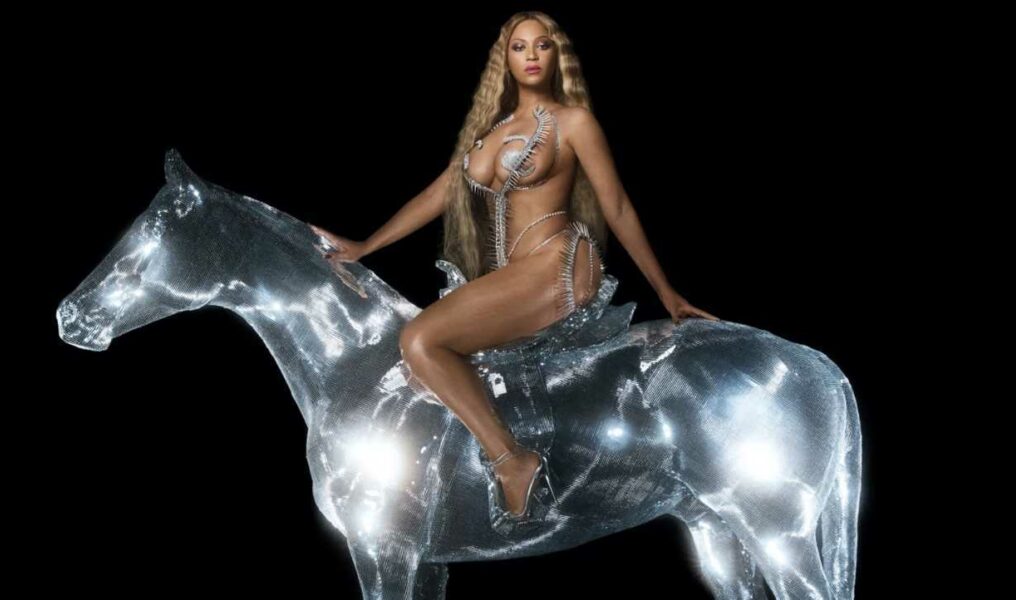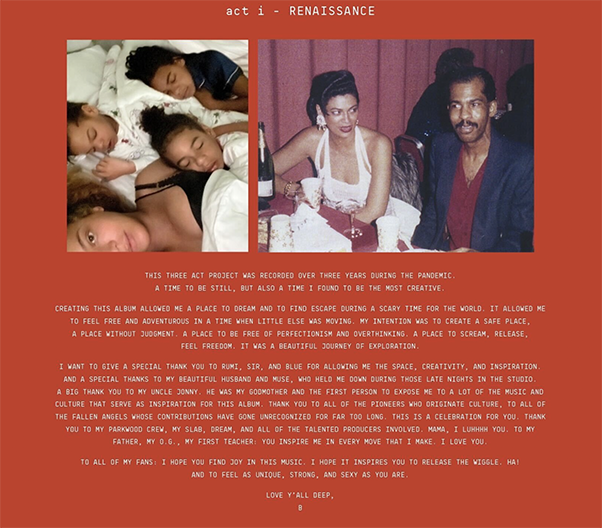Why We’re Not Surprised Beyoncé Has Lovingly Dedicated Her New Album to Her Late Gay Uncle
Bey herself once told Pride Source just how much she loves her queer fans

Pride Source readers won’t be surprised to learn that, after some savvy Beyhive sleuthing, it's true: Beyoncé has lovingly dedicated her new “Renaissance” release to her gay uncle who died of AIDS-related illness.
Even in 2011, when Beyoncé gave this rare LGBTQ+ press interview to Pride Source while promoting her album “4,” the Beyhive was delighted to hear the megastar make it crystal clear that she has a lot of love for her LGBTQ+ audience. And it wasn't just when she was asked about girls and gays running the world together. (To which Queen Bey responded, laughing, "That's what I meant when I said girls.")
“If anyone is brave and true to themselves, it’s my gay fans,” Beyoncé said to Pride Source editorial director Chris Azzopardi on the phone at the time. “The amount of confidence and fearlessness it takes to do what maybe is not what your parents expect you to do or what society may think is different — to be brave and be different and to be yourself — is just so beautiful.”
“It’s what we all want to be at the end of the day,” she continued. “And not worrying about satisfying or becoming what other people think you’re supposed to be, that’s like the ultimate dream — to just be brave.”
On Thursday,
Beyoncé posted the album's liner notes on her website, which reveal that “Renaissance,” Beyoncé’s seventh album, is part of a "three-act" project that had been in the works for three years. While she noted that Jay-Z played a big role in helping bring the album to fruition, she added that "Renaissance" wouldn't have been possible without her Uncle Jonny's influence.
"A big thank you to my Uncle Jonny. He was my godmother and the first person to expose me to a lot of the music and culture that serve as inspiration for this album," she wrote. "Thank you to all of the pioneers who originate culture, to all of the fallen angels whose contributions have gone unrecognized for far too long. This is a celebration for you."

In a 2019 acceptance speech for the Vanguard Award at the 30th Annual GLAAD Media Awards (an award she shared with husband Jay-Z), she referred to Uncle Jonny as “the most fabulous gay man” she had ever known.
“I want to dedicate this award to my uncle Jonny, the most fabulous gay man I ever knew, who helped raise me and my sister,” she said in the speech.
“He lived his truth. He was brave and unapologetic during a time when this country wasn’t as accepting,” she continued. “And witnessing his battle with HIV was one of the most painful experiences I’ve ever lived. I’m hopeful that his struggle helped to open pathways for other young people to live more freely. LGBTQIA rights are human rights.”
Beyoncé’s mom Tina Knowles’ recent Instagram post, which features artist Mark Bradford and her dancing to the album's first single, “Break My Soul,” also touched on Beyoncé’s affection for Jonny.
“Mark and I bonded over our loved ones that we lost way too young,” Tina wrote in the post. Jonny, sources say, was actually Tina’s nephew, but Beyoncé and sister Solange grew up thinking of him as their uncle since, according to Tina, he was "my very best friend and nephew who helped to raise my kids."
As for Beyoncé’s post-“4” artistic evolution, she has made bolder political and social statements through her work. Creating art that means something to her first and foremost is clearly important to her. “Break My Soul" is a prime example. It's so much more than a bass-driven, gay-forward house number — one that samples Robin S.'s 1993 club "Show Me Love" — with lyrics like “queens in the front." It's therapy. Because as you're working up a sweat on the dance floor, Bey’s actually pushing you to chart a course to a better you:
If you don't seek it, you won't see it
That we all know (can't break my soul)
If you don't think it, you won't be it
That love ain't yours (can't break my soul)
Tryna fake it never makes it
That we all know (can't break my soul)
You can have the stress and not take less
Already it's clear that “Renaissance” has inspired the kind of self-love the artist told Pride Source she hoped to achieve with 2011’s “4.”
"I hope that I’ve given them confidence, and I hope that I’ve given them inspiration,” she told Azzopardi in the 2011 Pride Source interview. “I just want everyone to become a better person, and I hope that when they see me perform they can live out their fantasies and see my work ethic and apply it to their lives and be confident and proud.”










